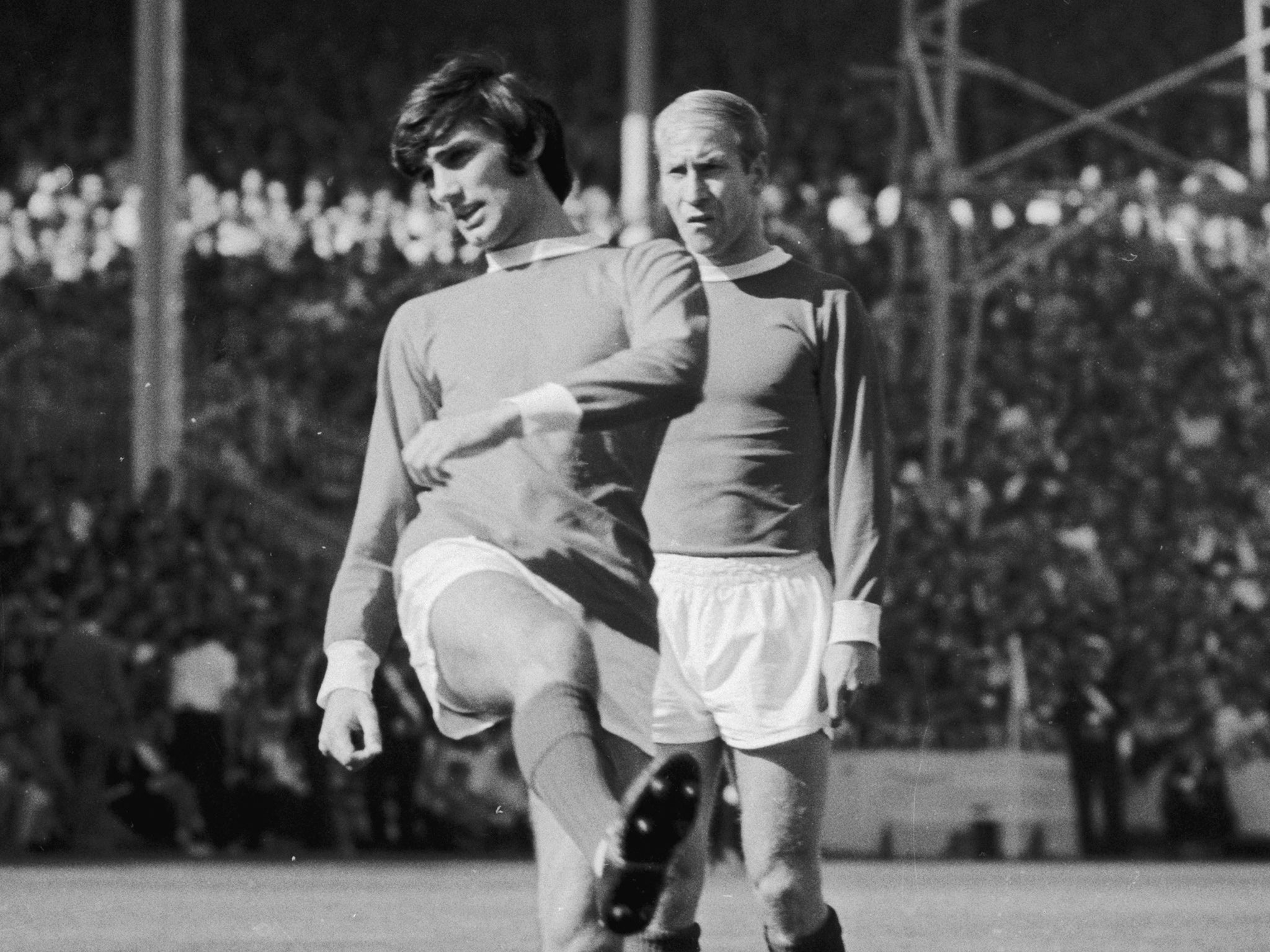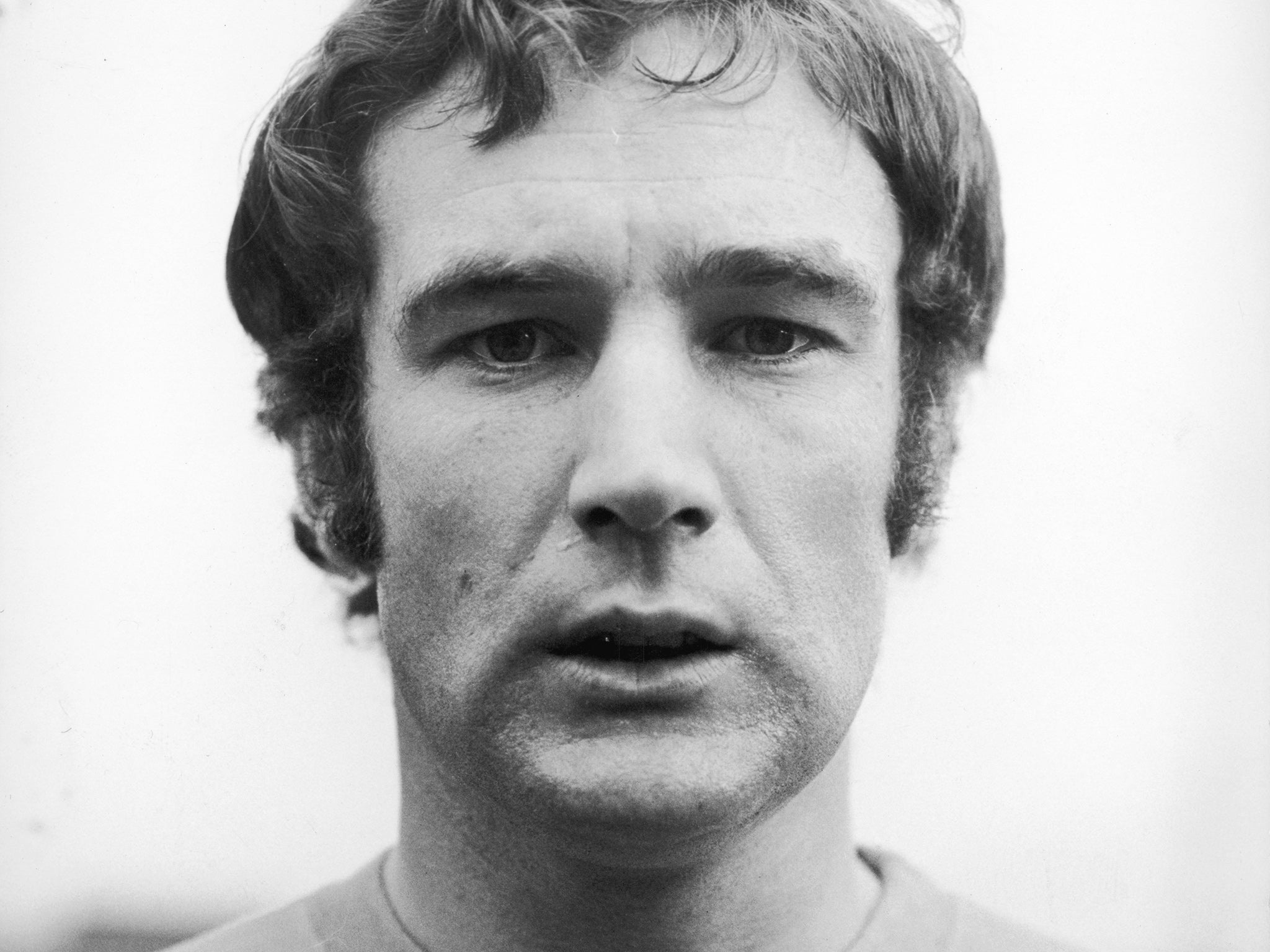Everton vs Manchester United: Remembering their 1966 FA Cup semi-final, 50 years on to the day
By a quirk of fate, the two clubs meet in an FA Cup semi-final again a half-century on from their 1966 meeting

Your support helps us to tell the story
From reproductive rights to climate change to Big Tech, The Independent is on the ground when the story is developing. Whether it's investigating the financials of Elon Musk's pro-Trump PAC or producing our latest documentary, 'The A Word', which shines a light on the American women fighting for reproductive rights, we know how important it is to parse out the facts from the messaging.
At such a critical moment in US history, we need reporters on the ground. Your donation allows us to keep sending journalists to speak to both sides of the story.
The Independent is trusted by Americans across the entire political spectrum. And unlike many other quality news outlets, we choose not to lock Americans out of our reporting and analysis with paywalls. We believe quality journalism should be available to everyone, paid for by those who can afford it.
Your support makes all the difference.The year 1966 was a terrible year for English football. Manchester United lost an FA Cup semi-final to Everton – and I was there.
On 23 April 1966, the great but sometimes frustrating United team of the Law, Best and Charlton era took on the good but equally frustrating Everton “school of science” team of Alex Young, Jimmy Gabriel and Derek Temple.
By a strange stroke of fate and the calendar, United play Everton in the FA cup semi-final again on Saturday - a half-century later to the day.
That other April Saturday, half way back to the Battle of the Somme, is bright but sad in my memory. A 16 years old me was among the red and white clad United masses packed into the lower half of the open, northern end of Burnden Park, Bolton (may it rest in peace).
Above us were packed many of the Everton fans in their blue and white scarves and plastic hats. I remember thinking how much more impressive their rich, blue battle colours looked than our sickly red ones.
I remember the plumes of steam from freight trains passing just behind the stadium on the old Lancashire and Yorkshire line from Bolton to Bury.
I remember travelling with my friends on the Bostocks coach from Macclesfield. I had supported United home and away that year and had enough programme tokens and away programmes to qualify for an FA cup semi final ticket for the first time.
In 1966, tickets were rationed by fidelity not price. It must have cost me around ten bob – 50p – for my standing ticket at Burnden Park.
I find that I can remember, without looking them up, the names of the whole of the Manchester United team that day and many of the Everton ones. Three of the players on the pitch – Ray Wilson of Everton, Bobby Charlton and Nobby Stiles of Manchester United – would go on to win the World Cup for England at Wembley three months later. Two other players, Brian Labone of Everton and John Connelly of Manchester United, were in the England squad.
I remember how disappointing the game was – and not just because United lost 1-0. The United and Everton teams of the mid 1960s were celebrated for the quality of their attacking football. Everton were champions in 1963, United in 1965 and 1967.
As so often in semi-finals, the game was a nervous mess, played on a 1960s late season muddy pitch. Everton won with a goal in the second half from their young wing half Colin Harvey. Later as a youth coach at Goodison Park, he persuaded a 14 years old Wayne Rooney not to give up football for boxing.
I remember travelling to the match in great apprehension. George Best was injured.
United had made a wonderful start to the 1965-66 season. I was at Filbert Street, Leicester when they won 5-0. I listened on a faint radio signal on the BBC Home Service when George Best dismantled the great Benfica team in the Stadium of Light in Lisbon and United won 5-1. I was at Molyneux for the FA Cup sixth round when United went behind to two early penalties and won 4-2.
By April 1966, everything had started to fall apart. Bestie was injured. United lost the European Cup quarter finals to an unknown Partizan Belgrade. Liverpool were running away with the First Division.
The FA Cup was our last chance of a trophy. But Bestie was injured.
Looking back now, that United team – Matt Busby’s third great United team – was technically brilliant but tactically naïve. For England, Alf Ramsey used my personal favourite, Nobby Stiles, as a defensive midfielder in the modern style. Busby used him – tiny and toothless as he was – as a central defender alongside Bill Foulkes.

The United midfielders, Bobby Charlton and Pat Crerand, were brilliant but vulnerable to bullying by more brutal midfielders (Leeds United spring to mind). United depended on the excellence of their wingers and the goal-scoring of Denis Law.
In the spring of 1966, Denis was in a scoring dip; John Connelly was in poor form on the right wing; and Bestie was injured. His place was taken by 19 years old Willie Anderson, Liverpool born, who had broken thought to the United first team at the same time as Best in late 1963 but then faded.
The 1966 semi-final was his chance to break through again. He muffed it. I remember the United fans – me included – cursing Anderson and Connelly time and time again as they lost the ball to the Everton fullbacks. He was sold the following January, to Aston Villa where he had a very successful career.
And so we lost. You can see parts of the game on YouTube. Everton went on to win the cup final, beating Sheffield Wednesday 3-2 with two Mike Trebilcock goals after going 2-0 down.
I remember an Evertonian coming up to me after the Bolton semi-final. He did not want to punch me on the nose (those day were a year or so away) but to shake my hand.
“Never mind,” he said. “At least, we’ll keep the cup in Lancashire.”
Even at 16 years old, I thought that was an odd remark. Liverpool was not in Lancashire. It was a world of its own.
Join our commenting forum
Join thought-provoking conversations, follow other Independent readers and see their replies
Comments